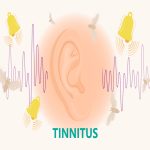
When Should Toddler Stop Using Sippy Cup?
6 min readWritten by Sindhuja Prabhu


It takes time and effort to familiarize toddlers with anything. Be it a bottle, a sippy cup, or a regular glass, they take time to trust and learn how to use it. Once they are comfortable, when and why should you change it? When and why should toddler stop using sippy cup? Especially if your toddler is very attached to it.
As a parent, it can be easy to just let your toddler use their favorite bottle or sippy cup and not bother changing it. However, you need to change their mode of drinking as they grow up. If you are not sure when you should change your toddler’s sippy cup and move on to regular cups, read on.
In This Article
- What is a Sippy Cup?
- Why Should a Toddler Stop Using Sippy Cup?
- At What Age Should Toddler Stop Using Sippy Cup?
- How to Switch From a Sippy Cup to a Regular Cup Easily?
- Advantages of Using Sippy Cups
- Disadvantages of Using Sippy Cups
- Top 5 Tips to Help Your Toddler Stop Using Sippy Cups
- What to do if Your Toddler Does Not Stop Using Sippy Cup?
- FAQ’s
What is a Sippy Cup?

A sippy cup, also known as a trainer cup or a beaker is a cup designed to help toddlers drink without spilling. It acts as a transition cup to help toddlers shift from a bottle to a cup.
Sippy cup has a cover on top that prevents the contents from spilling out. These cups come with a spout or a straw. If your toddler is used to a bottle, you can start with a spout and move on to a straw model.
Your toddler can tilt their sippy cup with a spout and drink just like from a bottle. You can slowly transition to a straw sippy cup to help your toddler develop swallowing skills.
Why Should a Toddler Stop Using Sippy Cup?
Drinking from a sippy cup encourages your toddler to thrust their tongue while sucking. Tongue thrusting can lead to a frontal lingual lisp, which can affect the toddler’s speech development.
Toddlers also use their sippy cups when they are bored or anxious. If your toddler is using their sippy cup for milk or juice for comfort drinking, then it can lead to a build-up of sugar around their teeth.
[Read : Speech And Language Development Milestones In Toddlers]
At What Age Should Toddler Stop Using Sippy Cup?
If you are looking for the best time to wean your toddler away from their sippy cup, then there is no such specific time limit. Many studies and experts also advise against using sippy cups and suggest a direct transition from bottles to open cups.
Toddlers can use their sippy cups until the age of 2 or 3 years. Toddlers develop a good grip and understand instructions better when they are close to 3 years old.
How to Switch From a Sippy Cup to a Regular Cup Easily?

If you are planning to transition your toddler from a sippy cup to an open cup, here are some steps you can follow-
- Start slow. Let your toddler try drinking a few sips of juice or their favorite drink from an open cup first.
- Offer the open cup every time they ask for a drink.
- Let the new open cup sit in plain sight so that your toddler can ask for it themselves.
- Every time you drink from an open cup or a glass, ask your toddler if they want their glass too.
- Multiple spills and stains are bound to happen, so handle them patiently.
Advantages of Using Sippy Cups
Sippy cups are not all bad. They have their own set of advantages such as –
- They are easier to carry when you are stepping out with your toddler. You can fill the cup, put the lid on and get going.
- Your toddler can drink from their sippy cup without any supervision. They can feel more independent when you let them take their cup and drink without asking for help.
- Spills and accidents are lesser. Since there is a lid and your child needs to suck on the spout, there are hardly any spills or accidents.
- Liquids do not pour out of sippy cups like they do from open cups, so, it reduces the risk of choking.
- Toddlers take to sippy cups after a feeding bottle, easier than they take to open cups. And the transition and the difficulties that come along with it are lesser.
Disadvantages of Using Sippy Cups

Along with the pros, come the cons as well. Experts advise against the prolonged use of sippy cups due to the following disadvantages-
1. Delays Swallowing
Constant thrusting of the tongue can delay the development of their swallowing skills.
2. Delays Speech
Resting the tongue forward due to constant thrusting can affect the way the toddler forms or pronounces words, thus delaying their speech.
3. Tooth Troubles
Resting the tongue on the teeth with sugary liquid trapped between the teeth and the tongue can lead to cavities. It can also affect the angle at which the teeth grow out.
4. Drinking All The Time
Some toddlers can use their cups for comfort and drink more than they actually need to.
5. Affects Socializing
If your toddler is hiding behind their sippy cup every time they feel uncomfortable or anxious, it can delay the development of social skills like talking, answering, or even smiling openly.
Top 5 Tips to Help Your Toddler Stop Using Sippy Cups

Making the transition from a sippy cup to a regular cup will not be easy. Here are the top 5 tips to help your kid stop using sippy cup without much fuss-
1. Demonstrate
Every time you drink from a cup or a glass, show them how it is done. Sound excited about drinking from an open cup. Toddlers love to mimic our actions and your toddler will want to drink from a cup just like you.
2. Let Them Choose
Toddlers go through a power struggle phase. Letting them choose their own cups, makes them feel in control. They will be keen to try out the cup they chose themselves.
3. Throw the Sippy Cup
Let your toddler throw away the sippy cup on their own. You can remind them about it every time they ask or cry for their sippy cup.
4. Make the Transition Slowly
Suddenly giving your toddler only an open cup for all drinks can be overwhelming for them. Start with just one drink in the open cup and slowly shift other drinks also to the open cup.
5. Be Consistent
Be consistent in your efforts for the transition. When you are consistent and fix a firm boundary, transition will be smoother.
[Read : When Do Babies Drink From an Open Cup?]
What to Do if Your Toddler Does Not Stop Using Sippy Cup?

Relax and give it more time. Each toddler’s weaning journey is unique and each responds differently to the weaning. If your toddler resists, gently encourage them every day. Every time they want a drink, offer the cup first.
Alternatively, you can try buying fancy or colorful cups, they can be very attractive and tempt your toddler to use them. Just remember, the more you try to force wean them, the more they will resist and make this entire process very cumbersome for both.
Weaning your toddler from their sippy cup can be challenging. Parents need to be patient and understanding when they are taking away one of their toddlers’ favorite things. Despite the challenges and difficulties, tread on carefully to ensure that your toddler gets over the habit of sippy cups and the transitioning phase is also not very traumatic for them.
FAQ’s
1. How Long Can a Toddler Use Sippy Cups?
A toddler can use a sippy cup up to 2 or 3 years of age. Around this age, their swallowing skills will develop and they can transition to an open cup.
2. Can Sippy Cups Delay Speech?
Some experts believe that they can. The constant thrusting of the tongue to drink from a sippy cup can change the resting position of the tongue. As a result, the toddler can develop a lisp while speaking and also delay overall speech development because of the tongue position.
3. Which is Better, Straw or Sippy Cup?
A straw is any day better than a sippy cup. Reason being that using a straw works on the muscles in the lips, cheek and tongue areas and helps strengthen and build them. It also helps to provide a proper resting position for the tongue and hence prevents any speech problems in future. On the other hand, a sippy cup will cause the toddler to rest the tongue in the front of the mouth, which may result in lisping.
Read Also: When Should I Introduce Spoons and Forks to My Baby?

Sindhuja Prabhu,M.Sc (Psychology),PGDBM
Sindhuja, a mother of two, is an obsessive mom with a keen interest in psychology, especially child psychology. Her quest for knowledge and way with words led her to become a passionate content writer. She transformed her love for writing into a full-fledged career which incidentally also turned up being the perfect stress buster for the last 5 years.Read more.
Responses (0)
Want curated content sharply tailored for your exact stage of parenting?
Related articles
Sponsored content
Discover great local businesses around you for your kids.
Get regular updates, great recommendations and other right stuff at the right time.











